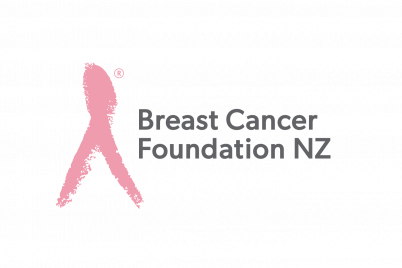The Health Research Council of New Zealand, Breast Cancer Cure, and Breast Cancer Foundation NZ are pleased to announce that funding has been offered to the following recipients through the Breast Cancer Research in New Zealand initiative.
This year’s call for proposals was about identifying potential targeted and immune therapies for breast cancer, with a focus on targeted treatments, aspects of early detection, prognostic and predictive diagnoses, or preventative therapies.
2018 Breast Cancer Research in New Zealand Partnership recipients:
Dr Robert Weinkove, Malaghan Institute of Medical Research
Preventing breast cancer metastasis with conjugate vaccines targeting human HER2
24 months, $248,900
Lay summary: Metastasis is a devastating complication of breast cancer, and tumours over-expressing human epidermal growth factor receptor 2 (HER2) carry higher risk. One strategy to prevent metastasis is to vaccinate against HER2. Although existing HER2 vaccines can induce immune responses, improved clinical outcomes have not yet been demonstrated, and better vaccines are needed. We have developed a new series of vaccines, which uniquely stimulate specific white blood cells to boost immunity against proteins on cancer cells. Phase 1 of this project will establish a model of metastatic breast cancer expressing human HER2, and will test the capacity of a series of HER2-targeted conjugate vaccines to prevent metastasis. In Phase 2, we shall test the ability of these vaccines to elicit anti-HER2 responses within blood immune cells from people with and without breast cancer. Our aim is to develop potent new vaccines with potential to prevent recurrence of HER2 positive breast cancer.
Dr Dean Singleton, University of Auckland
Targeting HIF-1 in Triple Negative Breast Cancer using glutaminase inhibitors
24 months, $237,494
Lay summary: Low-oxygen (hypoxia) is a common feature of breast tumours that promotes aggressive disease outcomes and poor patient survival. Hypoxia is “sensed” in cells by a protein called hypoxia-inducible factor 1 (HIF-1). HIF-1 accumulation in oxygen-deprived cancer cells promotes the growth of new tumour blood vessels and causes cancer cells to become invasive and resistant to anticancer therapy. Interestingly, certain triple negative breast cancers (TNBC) make and secrete the amino acid glutamate. Glutamate accumulation in the tumour interferes with uptake of cysteine and this causes activation of HIF-1, even when oxygen is abundant. Using drugs to block glutamate production (glutaminase inhibitors) we demonstrated reduced glutamate secretion and increased degradation of HIF-1. Glutaminase inhibitors are showing clinical activity in studies of heavily treated, therapy-resistant TNBC. Our work aims to further characterise the role of HIF-1 in TNBC response to glutaminase inhibition and assess its potential as a predictive biomarker of treatment response.
Prof John Miller, Victoria University of Wellington
Targeting breast cancer metastasis with heparan sulfate mimetics
18 months, $100,000
Lay summary: Human breast cancer cells express heparanase, an enzyme that degrades the extracellular matrix that surrounds cells, including tumour cells. This breakdown of the matrix facilitates escape of the tumour cells and entry into the circulation, leading to the formation of secondary tumours (metastasis), the main cause of cancer death. Heparanase is therefore a highly druggable target for breast cancer therapy. Our approach will be to prevent the action of heparanase on the extracellular matrix with non-toxic heparan sulfate-based compounds. There are no therapeutically effective heparanase inhibitors currently available in the clinic. Preliminary trials in mice have shown our heparan sulfate compounds have low toxicity and significantly retard the spread of cancer cells. Our research will combine leading expertise in synthetic and medicinal chemistry and cancer biology to evaluate our compounds in triple-negative, metastatic human breast cancer cell lines in culture and in animal models of breast cancer.
Dr Heather Cunliffe, University of Otago
Investigating Fn14 as a driver of breast cancer metastasis
24 months, $133,263
Lay summary: Breast cancer is the most common malignancy worldwide and the leading cause of cancer death in women. Invasion and metastasis are the major reasons for breast cancer-associated mortality. We have identified the presence of a protein called Fn14 on the surface of 75% of invasive breast cancers, that is strongly prognostic for distant metastasis, with the strongest association in HER2/neu positive and Triple Negative breast cancers. Fn14 is not present in normal breast tissues, but once expressed, is sufficient to trigger cell invasion, and behaviour consistent with metastatic progression. Our project aims are 1) to define the utility of Fn14 as an independent prognostic indicator in an existing clinically-annotated breast cancer cohort, and 2) to functionally validate Fn14 as a driver of metastasis in preclinical models. Successful outcomes will define Fn14 as an important prognostic indicator for aggressive disease, and expose Fn14-driven biology as a novel therapeutic vulnerability.
